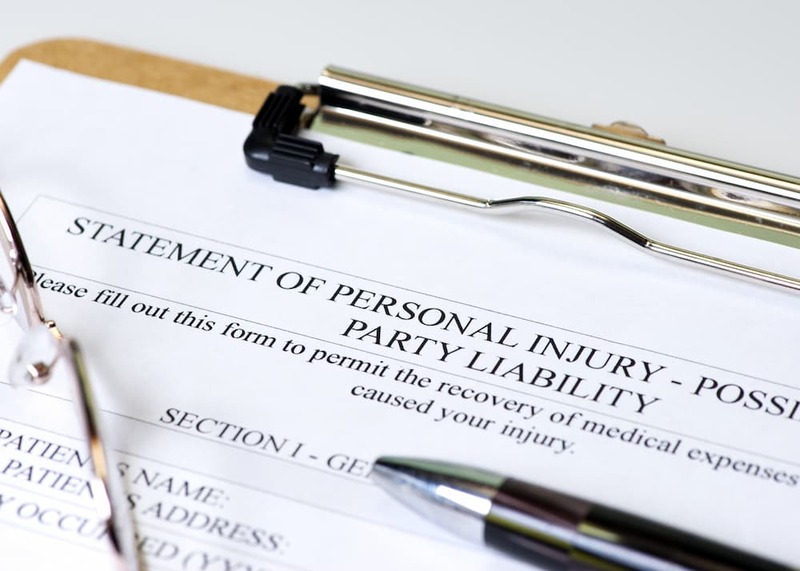
If you suffered injuries in an auto accident in Florida, you’re likely wondering who will pay your medical bills and lost wages. In most cases, personal injury protection (PIP) coverage will help.
What is PIP? And is PIP required in Florida?
PIP is a mandatory component of Florida’s auto insurance system, protecting you and your loved ones in the event of an accident. In this guide, our Tallahassee auto accident attorneys discuss PIP insurance in Florida, what PIP covers, and what you need to know about presenting a claim.
For a free consultation, please call (850) 601-1111 or send us an online message today.
How Florida PIP Insurance Works
Florida is a no-fault insurance state. That means that regardless of who is at fault in an accident, each driver’s insurance covers their injuries and damages. PIP coverage, also known as “no-fault insurance,” provides immediate financial support for medical expenses, lost wages, and some related costs after an accident.
This coverage helps you avoid the lengthy legal battles that can arise when determining fault and seeking compensation from the at-fault party.
Minimum Florida Personal Injury Protection Requirements
The minimum required PIP coverage in Florida is $10,000 per person for medical expenses and $5,000 for funeral expenses. However, it’s essential to remember that these minimums may not be sufficient to cover all your costs after an accident. You should carefully consider your needs and choose a coverage amount that protects you and your family.
In accidents involving severe injuries, such as paralysis, victims can “step outside” the no-fault system and pursue a personal injury claim.
There are other coverages to consider besides PIP to protect you and your family better:
Bodily Injury Liability (BIL) Coverage
Although not mandatory in Florida, BIL coverage can protect you if you’re found at fault for an accident that causes injury or death to others. It can cover their medical expenses, lost wages, and pain and suffering.
Uninsured/Underinsured Motorist (UM/UIM) Coverage
This coverage can help you if you’re injured in an accident caused by a driver who doesn’t have insurance or doesn’t have enough coverage to pay for your damages.
Collision and Comprehensive Coverage
These coverages can help pay for repairs or replacement of your vehicle if it’s damaged in an accident or for other covered events, such as theft or natural disasters.
Speak with your insurance agent or representative to ensure you have adequate coverage.
What Does PIP Insurance Cover in Florida?
PIP coverage in Florida provides financial support for various expenses related to your accident.
Here are some of the key benefits it offers:
- Medical expenses: PIP coverage pays for medical treatment and services you need due to injuries sustained in the accident. This coverage includes doctor visits, hospital stays, diagnostic tests, surgeries, physical therapy, and more.
- Lost wages: If you can’t work due to your injuries, PIP coverage can help compensate you for your lost income. Typically, it covers 60% of your gross income up to the policy limits.
- Replacement services: If you’re unable to perform daily tasks such as cleaning, cooking, or childcare due to your injuries, PIP coverage can pay for someone else to provide these services for you.
- Death benefits: If you or a loved one passes away due to an auto accident, PIP coverage can also provide a death benefit that can help with funeral and burial costs.
PIP not only extends to drivers but to your children as well, even if they are riding the school bus. It will also cover you if you’re a passenger in someone else’s vehicle.
Understanding PIP Coverage Limitations
While PIP coverage provides essential support after an accident, it also has some limitations and exclusions.
Here are some of the critical restrictions you should know about:
- The 14-day rule: To be eligible for Florida PIP benefits, you must seek medical treatment within 14 days of the accident. If you fail to do so, your insurance company may deny your claim.
- Emergency medical condition (EMC) requirement: In Florida, PIP coverage pays for only 80% of your medical expenses if you have an EMC, up to your policy limit. If your injuries don’t meet the EMC threshold, your PIP coverage is limited to $2,500.
- Deductibles and copayments: Your policy may require paying a PIP deductible before your insurance kicks in. Additionally, you may be responsible for copayments for certain medical services.
- No fault-based damages: PIP coverage doesn’t pay for fault-based compensation, such as pain and suffering.
Certain situations may exclude you from receiving PIP benefits. Examples include driving under the influence, intentionally causing an accident, or using your vehicle for illegal activities.
How PIP Coverage Works with Health Insurance
In Florida, your PIP coverage is primary. That means it pays for your accident-related expenses before your health insurance kicks in. However, if you exhaust your PIP benefits, your health insurance can help cover any remaining costs. But remember that health insurance has different rules involving everything from deductibles to co-pays.
Contact a Florida Car Accident Lawyer
If you have questions about PIP insurance in Florida or believe your injuries meet the requirements to pursue a personal injury claim, contact a Florida car accident lawyer. The skilled legal team at Nonni Homola stands ready to help. We have a proven track record and years of experience helping injured victims navigate the challenges of the Florida legal system.
Please contact our office online or call (850) 601-1111 today to schedule a free initial consultation.

